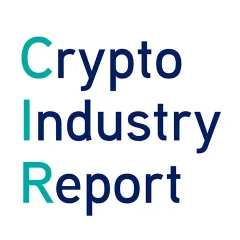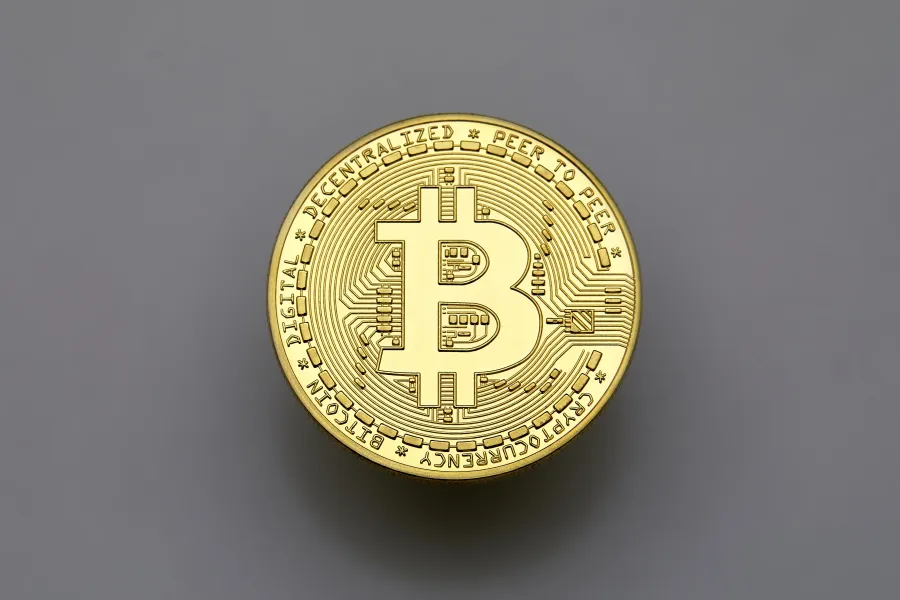SWIFT explores blockchain interoperability
This week, our blockchain experts assessed the following topics:
- SWIFT explores blockchain interoperability
- SEC against crypto: The fight is on
- DeFi darling Arbitrum goes down
- CFTC wins – DAO’s precedent
Our bi-weekly Crypto Industry Report provides you with valuable information on the global crypto industry - picked and analysed by our blockchain experts.
SWIFT explores blockchain interoperability
SWIFT has partnered with Chainlink in a new set of experiments to assess how financial institutions can leverage the existing SWIFT infrastructure to effectively dictate the transfer of tokenised value across various private and public blockchain networks. Chainlink, a Web3 platform, will offer connectivity across private and public blockchains for the experiments. In addition, SWIFT will work with a few large institutions like Euroclear, BNY Mellon, Australia and New Zealand Banking Group Limited (ANZ), Citi, and SIX Digital Exchange (SDX), among others, in these trail projects.
SWIFT’s announcement follows a wave of successful pilots it had in 2022 that were geared towards demonstrating how the firm’s current infrastructure could be utilised as a single access point to several tokenisation platforms managed by financial institutions operating private blockchains. Besides testing the interoperability function, the new round of experimentation will see the global financial messaging network address possible regulatory and operational drawbacks facing financial institutions while functioning in the blockchain environment.
SWIFT will showcase how its infrastructure can be used to ease blockchain interoperability with this new set of experiments. The first example will entail the movement of tokenised assets across two wallets on a designated public blockchain network. The second example will encompass the transfer of tokenised assets from a public blockchain to a permissioned one. The third example will involve transferring tokenised assets from one public blockchain to another.
Chainlink will be used in the experiments as an enterprise abstraction layer that will securely link the SWIFT system to the Ethereum network, whilst the former’s Cross-Chain Interoperability Protocol (CCIP) will permit complete interoperability between the source and target blockchain. SWIFT also plans to delve into non-technological elements that are crucial for regulated bodies to interrelate with public blockchains and participate in cross-network transactions. These will cover compliance, operational, and regulatory challenges. SWIFT plans to publish the findings of its experiments later this year.
SEC against crypto: The fight is on
The Securities and Exchange Commission (SEC) in the U.S., on June 5, filed 13 charges against Binance and its founder, Changpeng Zhao (CZ). Some of the charges filed against Binance include deceiving investors and regulators, disregarding KYC rules, mismanaging customer funds, and operating an unregistered exchange. The charges against Binance are incriminatory and make it hard to envision how the crypto exchange will continue running its U.S. subsidiary. Fiat on- and off-ramps have already been stopped with the US entity.
On June 6, the SEC was at it again, filing charges against Coinbase. Coinbase is being sued for operating as an unregistered broker, clearing agency, and securities exchange. The exchange is also charged with operating an unregistered staking program. In Coinbase’s lawsuit, the SEC stated that various assets like Axie Infinity, Cardano, Chilliz, Dash, Dfinity, Filecoin, Flow, Near, Nexo, Polygon, Sandbox, Solana, and VGX are securities. Interestingly, neither Bitcoin nor Ethereum appeared in the document
The SEC's recent witch hunt on crypto exchanges operating in the U.S. has attracted criticism from several politicians who disapprove of its actions. For instance, Rep. Ritchie Torres, an N.Y. Democrat, believes the SEC’s actions are a complete contempt for Congress, which is in the process of developing a crypto regulatory framework. “The latest enforcement action against Coinbase is an egregious example of regulation by enforcement,” Torres said. “His view of the law has been constantly changing,” Torres added. “Mr. Gensler has gone from a crypto cheerleader to a crypto skeptic. He’s portraying crypto as the villain in order to portray himself as a political hero.” That means Torres reckons this change is politically motivated.
Furthermore, Senator Cynthia Lummis from Wyoming called the regulator out for not providing enough guidance on what differentiates a commodity and security in a tweet shared on June 6 in response to the charges against Coinbase. She also emphasised that real consumer protection necessitates establishing a legal framework for exchanges to follow, rather than pushing them offshore. This is what seems to be happening with several US crypto companies eyeing to other jurisdictions. In the meantime, Binance and Coinbase are fighting the SEC charges in court, and only time will tell how each case unfolds.
Amidst this tumult, a new draft bill on how crypto assets that start out as securities could, in the end, be regulated as commodities was released by the Republican chairs of the House Agriculture and Financial Services committees. The Digital Asset Market Structure Bill addresses critical issues facing the crypto industry, such as whether tokens are commodities or securities, clarification on what a decentralised blockchain network really is, and how the spot market should operate. For now, however, it remains unclear how much democratic support the bill will garner in Congress.
A tweet thread shared by Justin Slaughter, a former Senior Adviser at the SEC, details the bill’s content. Slaughter observes that the bill touches on jurisdictional matters, registration, and stablecoins. He also points out that it’s rare to see two chairs collaborating on any legislation. “The fact that these two members decided to work together on this bill is very significant. It shows they want to get this passed, [...] and everyone should take this legislation seriously,” Slaughter wrote.
DeFi darling Arbitrum goes down
Arbitrum, a layer-2 blockchain that has grown to become a DeFi darling, briefly halted operations on June 7 due to a software bug in its sequencer. The bug caused Arbitrum’s centrally-controlled sequencer — the piece of software that bundles user transactions together and posts them on-chain on the Ethereum blockchain — to revert transactions, causing delayed network operations. The network currently holds over $2 billion in crypto asset deposits.
According to the Arbitrum Developers, the blockchain’s funding mechanism consists of two wallets — the sequencer and the gas-refunder wallet. The sequencer wallet typically has a low ETH balance, programmed to post transactions on-chain. The gas-refunder wallet, however, is a smart contract with a high ETH balance. It is set to automatically refill the sequencer wallet only if it posts successful transaction batches. In addition, it has an inbuilt fail-safe protection that ensures it cannot be automatically refilled when the sequencer malfunctions, and this is what the Arbitrum team claimed caused the issues it experienced.
However, other observers reported that Arbitrum’s sequencer stopped working because the blockchain ran out of funds used to pay for gas fees on Ethereum and had to be manually topped up, claims which Arbitrum Developers vehemently refuted in a tweet thread shared on their page. Nonetheless, they didn’t provide further details regarding the bug and stated that a full post-mortem would be shared in due time. Be that as it may, the incident has once more called the question of layer-2 blockchain solutions into question.
CFTC wins – DAO’s precedent
In September 2022, The U.S. Commodity Futures Trading Commission (CFTC) filed a complaint against Ooki DAO for flouting CFTC regulations, operating an illegal trading platform, and unlawfully acting as a futures commission merchant (FCM). Ooki DAO failed to respond to the CFTC complaint, which led the regulator to request the judge to rule in its favour since the DAO had breached federal commodities laws for failing to respond to an ongoing suit.
The judge ruled in favour of the CFTC and ordered the exchange to cease all its operations. Moreover, the court ordered a permanent ban on its websites and the removal of any online content. The DAO was also fined a sum of $643,542, payable as a civil monetary penalty. This judgment sets an example for other DAOs that they could be legally held accountable as a ‘person’ under the CFTC Act for their actions. From now on, this precedent could open doors for governing bodies to take legal action against decentralised exchanges and DAOs. DAO founders and its members certainly will have to pay more attention to how exactly they set up their decentralised autonomous organisation.
Share post

Related Posts

To be continued: SEC pushes back at Coinbase
SEC pushes back against Coinbase's claim of no regulatory jurisdiction, stating the crypto exchange knowingly violated securities laws. Meanwhile, Gemini, owned by the Winklevoss twins, files a lawsuit against Digital Currency Group and CEO Barry Silbert alleging fraud and deception following the collapse of a lending venture. The Bank for International Settlements survey reveals that 93% of central banks are working on Central Bank Digital Currencies (CBDCs) which are seen as potential geopolitical policy tools and a challenge to the dollar's dominance. The race for a Bitcoin ETF intensifies, with BlackRock refiling its application featuring Coinbase as the market surveillance partner, as the Grayscale Bitcoin Trust's discount to net asset value narrows, potentially indicating the transformation into a proper ETF.

BlackRock fever: The ETF filing spree and institutional appetite
BlackRock filed for a Bitcoin ETF with the SEC, inspiring similar applications from firms like WisdomTree, Invesco, and Fidelity, and boosting Bitcoin's value. Traditional finance institutions such as Fidelity and Nasdaq are showing increased interest in crypto, with moves towards exchange and custody services. The defunct crypto exchange FTX, under new CEO John Ray III, is planning a potential revival after recovering significant assets. Meanwhile, the IMF is developing a global CBDC platform for cross-border transactions and DAI, a major stablecoin, is diversifying its backing from USDC to include real-world assets.

China wants an Internet 3.0, while Hong Kong gears up for crypto trading launch
China is striving for advancement in Internet 3.0 technologies, with Beijing's white paper outlining plans to invest in the development of the metaverse and Web3 tech such as non-fungible tokens, but not cryptocurrencies due to the country's previous ban. Meanwhile, Hong Kong is launching its new crypto trading regulations, allowing retail investors to participate from June 1, 2023, with exchanges like Huobi Hong Kong beginning to offer spot trading to retail and institutional clients. Furthermore, the Cybersecurity and Technology Crime Bureau of the Hong Kong Police Force is launching a metaverse platform, 'CyberDefender', to educate the public about potential threats and crime prevention in the metaverse.

BRC-20: Innovating on Bitcoin is the new cool
A new Bitcoin “token standard” called BRC-20 is the hottest thing right now in the crypto space. It was introduced in March 2023 by a pseudonymous person called Domo. Bitcoin Request for Comment 20 (BRC-20) is an experiment that brings fungible tokens to the Bitcoin blockchain using the Ordinals protocol. Ordinals rely on ordinal theory, enabling the identification and tracking of individual satoshis within Bitcoin's existing supply, while also allowing them to be inscribed (associated) with data. Through this technique, satoshis (sats) are given ordinal numbers starting with zero. Anyone can add a script file to a sat to create and transfer a BRC-20 token on the Bitcoin blockchain. BRC-20 tokens are created using three functions: deploy, mint, and transfer.

US versus EU: Giants fighting for regulatory clarity
It is official now: The European Parliament voted overwhelmingly in favour of Markets in Crypto Assets (MiCA), legislation that will guide the crypto sector in all 27 European Union member states. 517 parliament members voted for it, while 38 voted against it. This approval makes Europe the first continent with comprehensive rules for cryptocurrencies. Also, it means that all EU member states will have unified crypto regulations. So, if a crypto business is approved in one EU member country, it could easily expand operations to another member state. The EU’s milestone was lauded by Binance as well as Kraken and Coinbase.

Ethereum: Another milestone reached with the Shanghai Update
On April 12, 2023, Ethereum successfully executed the planned Shanghai update also known as Shapella. The upgrade allows validators to unstake their staked ETH and withdraw their rewards, as well as staked ether if chosen. Now that another level of uncertainty has waned for the biggest smart contract blockchain, this new feature could attract more investors to stake their ether.

CFTC versus Binance:
Clash of the titans
The world’s leading crypto exchange by volume, Binance, alongside its CEO, Changpeng Zhao, and ex-Chief Compliance Officer, Samuel Lim, are being sued by the US Commodity Futures Trading Commission (CFTC).

Stablecoin USDC briefly lost its
peg. What do we learn from this?
One of the top stablecoins by market cap, USD Coin (USDC), de-pegged briefly from the US dollar on March 11 following the collapse of Silicon Valley Bank (SVB). Circle, the stablecoin’s issuer, held $3.3 billion in USDC reserves with the bank, which caused panic as investors rushed to withdraw their funds, assuming USDC could implode because of insufficient backing. However, the amount represented less than 8% of the stablecoin’s reserves.

Ethereum Shanghai upgrade pushed to April: Will there be too much selling pressure?
Ethereum stakers have been eagerly awaiting the Shanghai upgrade, which will enable them to withdraw their staked ether. Stakers’ funds have been locked since Ethereum introduced the proof-of-stake Beacon Chain in December 2020. The upgrade was originally slated to take place sometime in March but was pushed by about two weeks to April during a recent execution layer meeting.

Are regulators trying to make up for it by cracking down?
Following the infamous events of 2022, US regulators are turning up the heat on crypto services and products in 2023. One of the services they have targeted recently is custodial crypto staking, a process whereby customers have a financial service provider lock up their coins with a blockchain protocol over a certain period of time in exchange for rewards. This comes as no surprise since the SEC’s chairman, Gary Gensler, previously said that crypto staking looks very similar to lending. US crypto exchanges that offer this service are, therefore, in the SEC’s line of fire.